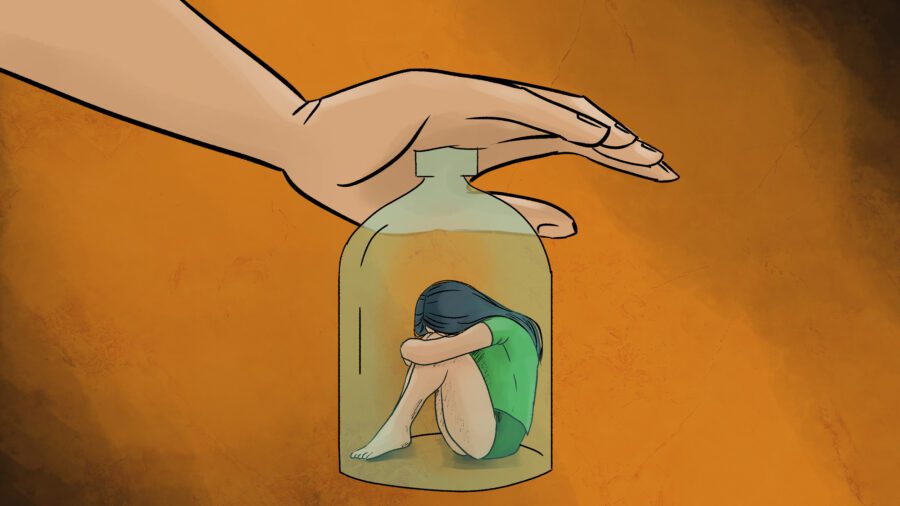
How to Navigate Relationships with Parents After You’re All Grown Up
Parents see the world differently from their children as they grow up.
Everyone grows up in different homes, and the experiences we share with our parents as children shape much of how we approach the world as adults. The way parents and kids interpret interactions differs. For example, many parents feel like they made decisions to protect us when, in reality, they were being overbearing and heavy-handed. These differing perspectives can drive a wedge between family members.
One thing we can all agree on is that no one is perfect. Whether we were raised in a “good household” or experienced significant parent-induced trauma during our childhood, every parent has their shortcomings. As we grow older, we naturally grow further apart from our parents and find navigating our parent-child relationships more difficult. However, it’s possible to establish a great relationship with your parents as an adult — it just takes a little patience and the right game plan.
How to Develop a Better Relationship with Your Parents
We can all do better in our relationships with our parents. In many cases, the way we interact with our parents as children continues into adult life. These behavioral patterns often result in misunderstandings, poor communication, and possibly permanent damage to the relationship when boundaries are crossed. The following tips may not resolve every concern with our parents, but they can help us improve communication and better respect each other’s boundaries.
Tip #1: Talk to Each Other Like Adults
An overwhelmingly common point of conflict between adult children and their parents is how they communicate. Our parents have spoken to us as authority figures for decades by the time we grow into adults, and this frame of thinking is a difficult habit to overcome on both sides of the relationship.

The Problem: The result of an inability to see beyond a parent-child relationship creates frequent age-inappropriate communication. Parents often fall into the trap of not seeing their children as adults, which results in them offering unwanted advice or making demands they would never ask of another adult. Consequently, this communication pattern causes adult children to respond with childlike immaturity.
The Solution: It may seem like an easier said than done situation, but the best way to stop this conversation pattern is to pay attention to how you speak to your parents. When you notice yourself slipping into immature responses and speech patterns, take a step back with your parents and reset how you address each other. Remember, adjusting communication is difficult, especially with parents, so don’t expect improvement immediately. Yet, sticking with the process and making gradual adjustments will better your communication skills over time.
Tip #2: Take Initiative in the Relationship
The Problem: The increased independence and responsibility of adulthood can cause separation between parents and their adult children. This separation often stems from busy schedules filled with full-time jobs, a social life, and other family responsibilities if we have a family of our own. Since we are only gifted with a limited amount of time, we need to be intentional with the time we spend with our parents instead of waiting for them to make a move.
The Solution: The best place to start if you have unintentionally drifted apart from your parents is to take the initiative in seeing them. A great first step is planning a lunch together so both of you can catch up on what has happened lately in life. From there, start to take further steps to find ways to bond as adults. Taking the initiative in the relationship prevents the relationship from fading due to the expectation of the other party making the first move.
Tip #3: Learn How to Implement Constructive Conflict
Growing up comes with many unknowns, and unfortunately, properly handling conflict tends to be one thing we don’t always learn from our parents. Instead of explaining the reasons behind corrections, many parents give the ever-popular response, “Because I said so.” This response may work while we are younger to prevent us from making poor decisions, but we need more thorough reasoning as we grow older.
The Problem: As we grow from children into young adults, many parents struggle to open effective communication channels behind correction or discipline. This lack of communication results in an unhealthy approach to the conflict, including passive-aggressive responses, ignoring the root of the disagreement, and other destructive coping mechanisms. Ultimately, harmful practices to resolve conflict create significant challenges for adult children and parents.
The Solution: The transition into adulthood allows you to step away from the past cycles of conflict resolution you experienced as a child. Learning how to use constructive conflict can help open the door to improving parental relationships. Instead of falling into unhealthy conflict resolution patterns with your parents, you can find ways to resolve old conflicts and grow together.
Tip #4: Set Healthy Boundaries
Healthy boundaries between parents and their kids can be one of the most challenging transitions when we reach adulthood. When we were young children, our parents were responsible for every aspect of our well-being. Because of this remarkably pressing responsibility, rules like leaving the bedroom door open or when bedtime was were necessary for our parents to protect our overall health.
The Problem: Parents’ habits and instincts to protect their children don’t disappear as we grow older, and the result is a difficulty to develop healthy boundaries with adult children. Adult children often feel like their parents overstep boundaries by doing things like giving too much advice or showing up at their residence without warning.
The Solution: You need to establish honest communication in order to set healthy boundaries with your parents. If you can work from a place of openness, you can both be candid about the limits you need in your relationship. Remember to establish your ground rules in gratitude — you want to convey that these boundaries come from a place of respect and love.
Tip #5: Accept Feedback from Your Parents
It’s common for parents to avoid having an open discussion with you about the effectiveness of their parenting style during your childhood. Most parents want what’s best for their children, but they don’t want to hear that they aren’t doing the best job. Consequently, receiving feedback from their adult children can be a point of friction in their relationships.
The Problem: Parents and adult children have independent views of what is right and acceptable. In some cases, this can cause points of friction in the relationship. For example, parents may disagree with phone use during an in-person conversation, or their adult child could feel uncomfortable about addressing specific topics during conversation.
The Solution: Accepting feedback is essential to any healthy relationship, and the relationship between parents and adult children is no different. Holding appropriate conversations and sharing feedback on each person’s feelings is essential to developing a better adult relationship with parents. The next time your parents share input about how they feel about the relationship, take the time to listen and make the necessary changes for growth.
Join In 200 Million+ On The Journey to Greatness
What if Your Relationship with Your Parent Is Beyond Repair?
Toxic relationships are unhealthy, and you shouldn’t make an exception for your parents. Holding on to the idea that “blood is thicker than water” or that you need to stick with family for life could be hurting your emotional, mental, and physical health if your relationship with one or both of your parents is toxic. Cutting ties with your parents may be one of the most difficult things you do in your life, but maintaining an unhealthy relationship will cause more pain than good.
How to Identify a Toxic Relationship with Your Parent
Admitting that you’re the adult child of a toxic parent can be a complicated situation. Even in verbal and mental abuse situations, people find it hard to break ties with family members because of their shared history. Instead of meeting the problem head-on and cutting ties with a parent who is causing harm, many try to turn a blind eye to the harmful effects of the relationship. If you’re worried that your parent-child relationship is unhealthy, look for the following signs:
- They’re incredibly reactive and turn minor issues into major problems resulting in hostility, anger, or verbal abuse.
- They lack empathy in the relationship and make every situation focus on their problems without seeing the adverse side effects.
- They’re incredibly controlling and still make unreasonable demands of their adult children.
- They’re highly critical of everyone around them and refuse to acknowledge the accomplishments of others.
- They blame others and refuse to accept responsibility for the cause of any problem — even if the root of the issue is their fault.
Holding onto a toxic relationship with your parents can have severe consequences for your overall well-being. The stress caused by an unhealthy relationship can increase the mental health challenges you face and put you at the risk of serious physical health problems. By taking a courageous step and cutting a destructive relationship from your life, you open possibilities for a healthier life.
Maintaining a Healthy Parent-Child Relationship Takes Work
Growing older and learning how to be more independent and how to say “no” to your parents is a process. Taking the time to set healthy boundaries, practicing better communication skills with your parents, and opening yourself to accept feedback are all essential facets of maintaining a healthy relationship as an adult child. Remember, you can build a healthy adult relationship with your parents with patience and persistence.
You deserve to have relationships that build you up! Cheers to the relationships that light you up and promote growth in your life — and cheers to greatness!
Greatness Authors
Greatness Authors is a collection of writers, thinkers, curiosity experts, and students of the world who are committed to bringing you the most up-to-date, impactful, and inspiring information surrounding Greatness topics.

How to Have a Healthy Romantic Relationship Even if You Share Different Beliefs

13 Tips to Help a Parent Transition into Assisted Living with Care & Respect

Take Your Power Back: 9 Subtle Signs Your Partner Is Gaslighting You

Apologizing 101: How to Apologize from the Heart & Mend Your Mistakes Without People Pleasing

The Ultimate Guide to Finding “the One,” According to Relationship Expert Stephan Speaks











